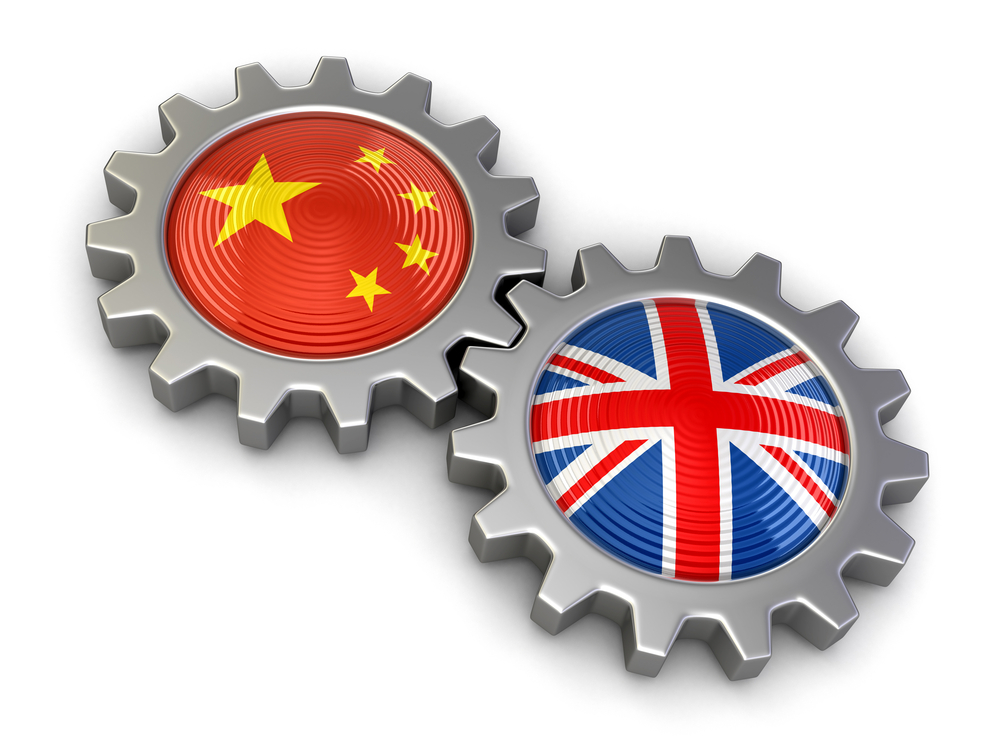The UK Going its Own Way with China

Please note that we are not authorised to provide any investment advice. The content on this page is for information purposes only.
The lavish welcome laid on for Chinese President Xi Jinping in the United Kingdom in October 2015 provoked a surprising amount of criticism in the British and international press. Journalists talked of Prime Minister Cameron and Finance Minister Osborne’s ‘kowtow’, called it a national humiliation, and reported — or perhaps speculated on — ire from the US administration.
The lavish welcome laid on for Chinese President Xi Jinping in the United Kingdom in October 2015 provoked a surprising amount of criticism in the British and international press. Journalists talked of Prime Minister Cameron and Finance Minister Osborne’s ‘kowtow’, called it a national humiliation, and reported — or perhaps speculated on — ire from the US administration.
Cameron’s unprecedented silence on human rights, wilful disregard for national security through seeking Chinese investment in critical infrastructure, and neglect of the interests of traditional allies were some of the accusations.
For the most part, the British government is unlikely to fret much over these unflattering commentaries. State visits to the United Kingdom always involve carriages, Buckingham Palace and the Queen. Xi’s reception was not notably different from that accorded to his predecessors Hu Jintao and Jiang Zemin. Xi was the first Chinese leader to address both houses of parliament, but not the first communist leader to do so the USSR had that honour on three occasions.
The human rights criticism repeats every time the United Kingdom and other European leaders meet their Chinese counterparts. There is no compelling evidence that the script of these meetings differed markedly from others on that score, nor that the UK’s human rights strategy for China has changed. And the Hinkley Point nuclear plant deal — where one-third of the plant would be financed by the state-owned China General Nuclear Power Corporation — is probably more questionable on the grounds of economic and energy strategy than national security.
China might be difficult, but unpalatable as it may be to deal as equals with the unelected leaders of an authoritarian state, it makes sense for the UK to seek a positive and predictable relationship with China. In addition, it is essential to work with China on global issues. However, it is certainly true that forging good relations with China is a diplomatic challenge that is complicated by China’s tense relationship with the UK’s traditional best friend, the United States. The US Navy’s challenge to China’s South China Sea island-building policy has thrown that into sharp relief.
European countries have long perceived China as more of an opportunity than a threat. The constructivist notion that promoting economic exchange would support the development of civil society in China and lead to enhanced freedom and political rights drives the European Union’s China policy.
Despite sharing an interest in US-led peace and security in Asia, the United Kingdom and its European neighbours obviously do not feel the challenge of China so keenly as the United States or China’s neighbours. Moreover, they have not always factored that strategic balance into policy decisions.
China has historically been strongly supportive of a united European Union with a clear, positive, and independent China policy. This would support China’s development through economic and technical exchange, and act as a counterweight to US primacy. Deng Xiaoping stressed the importance of a ‘strong and united Western Europe’ as early as 1985, and in the following year, Hu Yaobang called for Eastern and Western Europe to ‘jointly conduct a policy of independence and self-reliance in opposition to war’.
Many European nations were happy to push forward with an independent China policy, until the United States put its foot down in 2004 over a plan to lift the EU Arms Embargo, fearful of the impact on East Asia’s strategic balance. This plan was quickly shoved under the carpet. China’s interest in Europe subsequently declined.
By October 2015, the UK was not misreading the United States. In May, the UK declared its intent to become a founding member of the Asian Infrastructure Investment Bank, despite US lobbying against it. Cameron had made a strategic decision to reduce the ‘containment’ (and US influence) in his China policy.
The rest of the EU followed quickly behind, as it is bound to do this time. France and Germany quickly emphasised their own close ties as both their leaders flew to Beijing the following week. There has been a clear policy decision in London that the possible payoff of economic benefits to the UK, plus an enhanced Chinese contribution to global goods, outweighs American irritation and other risks.
British Foreign Secretary Philip Hammond announced Xi’s UK visit saying ‘This is a way of working together to support the prosperity of Britain and the economic growth of Britain. Also to work with China to ensure that China’s emergence is done in a way that ensures she respects the rules-based international system and works with the grain of the international community to be, and to remain, a responsible player on the world stage’.
Now it is up to UK politicians to show that they will still defend their values and the international system when there is a challenge from China.
UK’s strategic China–US balancing act is republished with permission from East Asia Forum




